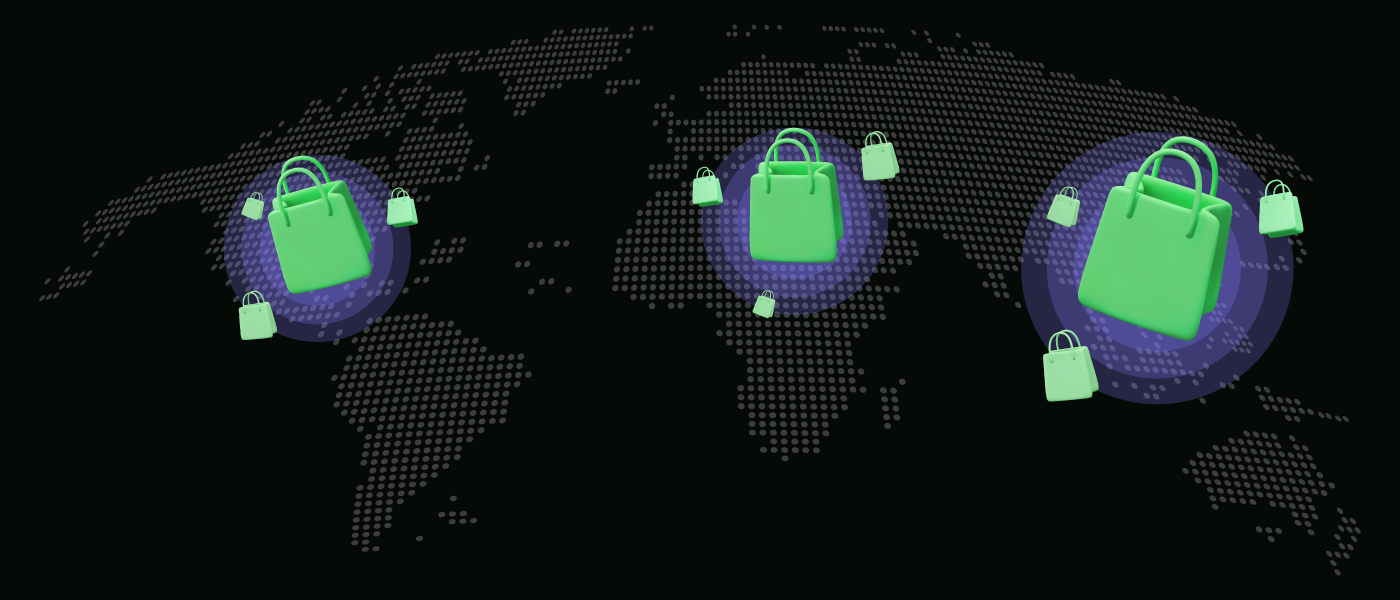Singapore has cemented its position as a premier destination for luxury goods in Southeast Asia. Renowned brands like The Swatch Group, LVMH, Rolex SA, Kering SA, and Richemont SA have established a strong presence in the nation, catering to an exclusive but diverse population. The market boasts a large product portfolio, encompassing everything from premium footwear and designer apparel to high-end cosmetics and exquisite fragrances.
This burgeoning industry is projected to reach US$4.23 billion in 2024, with a steady growth rate of 3.36% anticipated over the next four years. Interestingly, online sales are poised to become a significant driver, capturing an estimated 11.8% share of the market by 2024. This trend reflects not only Singapore’s robust e-commerce infrastructure but also the growing comfort level of high-end consumers with online luxury purchases.
This article delves deeper into the factors propelling Singapore’s luxury goods market, explores the evolving retail landscape, and examines the challenges and opportunities that lie ahead.
Factors Driving Growth
Singapore’s thriving luxury market is fueled by a potent combination of economic strength, a growing tourist base, and evolving consumer preferences.
- Strong Economy and Affluent Consumers: According to Google’s eConomy report, HVUs or high-value users make up 30% of online spenders and account for 70% of digital economy spending in Southeast Asia, with 78% of them coming from Singapore alone. Singapore’s robust economy, characterised by high GDP per capita and rising disposable income, has created a population with a significant appetite for luxury goods. Consumers are increasingly indulging in premium products, viewing them not just as possessions but as a way to elevate their lifestyle.
- Evolving Consumer Preferences: The modern luxury consumer in Singapore seeks more than just high-end products. There’s a growing demand for experiences that go beyond the purchase itself. Brands are responding by offering personalized services, exclusive events, and loyalty programs that create a sense of community and exclusivity. Additionally, the concept of personalization is gaining traction. Consumers are increasingly drawn to brands that offer customization options and cater to their unique tastes and preferences.
Factors contributing to the rise of online luxury sales
The luxury market in Singapore is witnessing a significant shift towards online retail, driven by several compelling factors:
- Digital Natives Take Center Stage: Southeast Asian consumers, particularly millennials and Gen Zs, are a major force driving the luxury market. They prioritise high quality, product longevity, and uniqueness when buying luxury goods, and online platforms are increasingly meeting these expectations.
- Singapore’s Tech-Savvy Landscape: Singapore boasts one of the highest internet penetration rates globally, creating a fertile ground for online luxury sales. This, coupled with the improved product range and user experience offered by online platforms, makes it easier for consumers to browse, compare, and purchase luxury items with confidence.
- Convenience: The sheer convenience of online shopping is a major draw. From the comfort of their homes, consumers can access a vast selection of luxury goods, enjoy flexible delivery options, and often benefit from competitive pricing.
However, it’s important to acknowledge the continued presence of traditional brick-and-mortar stores. These stores cater to consumers who value the premium in-person experience, the ability to physically examine products, and the personalized service offered by salespeople. Despite the online surge, physical stores will likely remain relevant but may need to adapt by offering seamless integration with online platforms (e.g., click-and-collect options) to cater to the evolving needs of luxury shoppers.
Challenges in the Online Luxury Market
While the online luxury market offers immense potential, it also presents unique challenges that brands must navigate to ensure a secure and successful experience for both themselves and their customers.
- The High Stakes of Fraud: Online fraud is a significant concern in the luxury sector. Due to the high value of the merchandise, luxury fashion experiences a fraud rate twice as high as basic apparel (4.81% vs. 2%). Fraudulent buyers can utilize stolen credit cards or engage in payment fraud to purchase luxury goods. Brands need to implement robust security measures, such as verifying payment cards directly with issuing companies and checking customer purchase history to identify potential fraudsters.
- Last-Mile Complications: Last-mile fraud, where products are stolen or tampered with during final delivery, poses a major threat. Return fraud is another concern, where customers might claim they never received an item or return used items as new, also known as “wardrobing.” Implementing product tracking solutions with unique identifiers can help mitigate these risks. These identifiers allow brands to verify the authenticity and status of returned items, minimizing fraud while maintaining a smooth customer experience.
- Adapting to a Changing Landscape: The luxury industry has witnessed significant disruption in recent years. To stay relevant in the online landscape, brands must be adaptable and embrace digital marketing strategies.
- Omnichannel Strategy: Catering to such exclusive and high-value consumers requires a seamless omnichannel experience. Consumers may research products online but prefer to finalize purchases in-store or vice versa. Brands need to bridge the gap between online and offline channels, offering consistent product information, pricing, and promotions across all touchpoints.
- Inventory Management: It is crucial to maintain a healthy balance between overstocking and experiencing stockouts. Luxury brands often deal with limited-edition collections or highly sought-after items, making accurate inventory management essential. Lock-in inventory practices can help, but brands need to be mindful of consumer demand to avoid frustrating stockouts.
How 3PLs help Luxury E-commerce Brands
For luxury brands, the online customer experience needs to be as exquisite as the products themselves. Every touchpoint, from browsing to delivery, needs to exude elegance and exclusivity. This is where a strong Third-Party Logistics (3PL) provider becomes a game-changer. Here’s how 3PLs empower luxury e-commerce brands to thrive:
- Enhanced Security and Fulfillment: Luxury items are high-value targets. 3PLs with specialized security measures like restricted access warehouses, CCTV surveillance, and advanced alarm systems ensure your products are safe from theft or damage. Additionally, their expertise in careful packing, handling, and fast turnaround times guarantees a smooth and secure fulfillment process.
- Premium Unboxing Experience: First impressions matter, especially in luxury. 3PLs can elevate your brand image by providing premium packaging options that reflect your brand’s essence. This could include custom-branded boxes, luxurious packing materials, and even personalized touches like handwritten notes.
- Global Reach with Regional Expertise: Luxury brands often cater to a global audience. 3PLs with strategically located warehouses around the world can expedite deliveries and minimize shipping costs. They also possess the regional expertise to navigate complex customs regulations and ensure smooth international deliveries.
- Inventory Management and Scalability: Luxury brands often deal with limited-edition items or fluctuating demand. 3PLs provide sophisticated inventory management systems that offer real-time stock visibility and data analysis. This allows you to optimize inventory levels, avoid stockouts, and scale your operations efficiently during peak seasons.
- Exceptional Customer Service: In the luxury world, customer service is paramount. 3PLs can provide dedicated account managers who understand the nuances of luxury brands and can handle customer inquiries and returns with professionalism and discretion.
Why Choose Locad
Singapore’s luxury market stands firmly as a regional powerhouse, driven by a robust economy, a flourishing tourism industry, and evolving consumer preferences. The rise of online retail presents a wealth of opportunities for brands to expand their reach and cater to the growing segment of digital-savvy luxury shoppers.
However, navigating the digital space requires addressing challenges like online fraud, last-mile logistics complexities, and the need for seamless omnichannel experiences. Here’s where Locad steps in. As a leading fulfillment solutions provider in Singapore, Locad offers a comprehensive suite of services specifically designed to empower luxury brands in the online arena.
Locad’s advanced inventory management systems and expertise in handling high-value goods ensure the integrity and quality of your luxury products throughout the fulfillment process. We partner with you to create a seamless online shopping experience that meets your clients’ high expectations.
So if you’re ready to unlock the full potential of online luxury retail in Singapore, contact Locad today and let us help you navigate the digital luxury landscape with confidence. Together, we can ensure your brand continues to thrive in this dynamic and exciting market.











